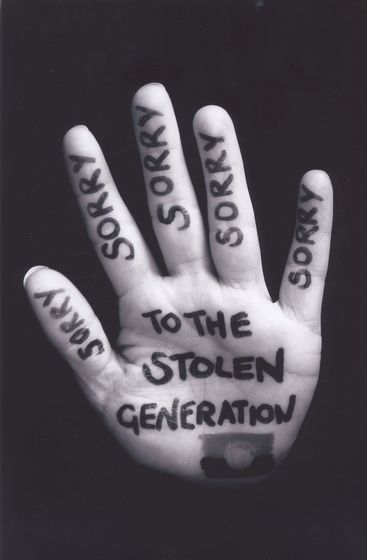
Partner Maithri Panagoda has acted in three Stolen Generations cases,
winning compensation for Aboriginal people who were taken away from their
family as children under government policy between 1910 and 1970. One of these was the case of Christopher Johnson, who was born in
Wilcannia, NSW in 1968. In 1973, at the age of four, he was removed from
his family and ‘committed by an order of the Children’s Court at Wilcannia
under the Child Welfare Act 1939 (NSW) to the care of the Minister for
Community Services to be dealt with as a ward and admitted to State control’. Over the next few months he was housed in three separate institutions
before his placement as a foster child with a white family in Sydney. He
remained there until 1981. In 1997, Christopher Johnson sued the Department of Community Services,
claiming damages for negligence, breach of statutory duty and breach of
fiduciary duty. His case was that DOCS had taken him away from his own
family and failed to supervise him or protect him from the abuse he suffered
at the hands of his foster family and at institutions subsequently, even though
there was notification of this abuse. Maithri Panagoda remembers: These were difficult cases. Mainly because of the time problem,
because things happened 30 or 40 years ago. So we had to do a lot
of work to get permission from court to proceed. We did all that. It’s
not the sort of thing you do on a daily basis. To get the witnesses is a
lot of hard work, mainly because the records are missing. You’ve got
to recreate the history. But it’s very, very satisfying at the end of the
day. In an article in Plaintiff magazine in June 2000, Panagoda wrote: It is undeniable that the policies of past governments to forcibly
remove Aboriginal children from their families, traditional lands and
cultures have had devastating effects on those individuals as well as
their communities. As plaintiff lawyers we should explore the avenues
available through the legal system to seek justice for indigenous people
of Australia at a time when attempts are being made to deny the mere
existence of a “Stolen Generation”.
winning compensation for Aboriginal people who were taken away from their
family as children under government policy between 1910 and 1970. One of these was the case of Christopher Johnson, who was born in
Wilcannia, NSW in 1968. In 1973, at the age of four, he was removed from
his family and ‘committed by an order of the Children’s Court at Wilcannia
under the Child Welfare Act 1939 (NSW) to the care of the Minister for
Community Services to be dealt with as a ward and admitted to State control’. Over the next few months he was housed in three separate institutions
before his placement as a foster child with a white family in Sydney. He
remained there until 1981. In 1997, Christopher Johnson sued the Department of Community Services,
claiming damages for negligence, breach of statutory duty and breach of
fiduciary duty. His case was that DOCS had taken him away from his own
family and failed to supervise him or protect him from the abuse he suffered
at the hands of his foster family and at institutions subsequently, even though
there was notification of this abuse. Maithri Panagoda remembers: These were difficult cases. Mainly because of the time problem,
because things happened 30 or 40 years ago. So we had to do a lot
of work to get permission from court to proceed. We did all that. It’s
not the sort of thing you do on a daily basis. To get the witnesses is a
lot of hard work, mainly because the records are missing. You’ve got
to recreate the history. But it’s very, very satisfying at the end of the
day. In an article in Plaintiff magazine in June 2000, Panagoda wrote: It is undeniable that the policies of past governments to forcibly
remove Aboriginal children from their families, traditional lands and
cultures have had devastating effects on those individuals as well as
their communities. As plaintiff lawyers we should explore the avenues
available through the legal system to seek justice for indigenous people
of Australia at a time when attempts are being made to deny the mere
existence of a “Stolen Generation”.
